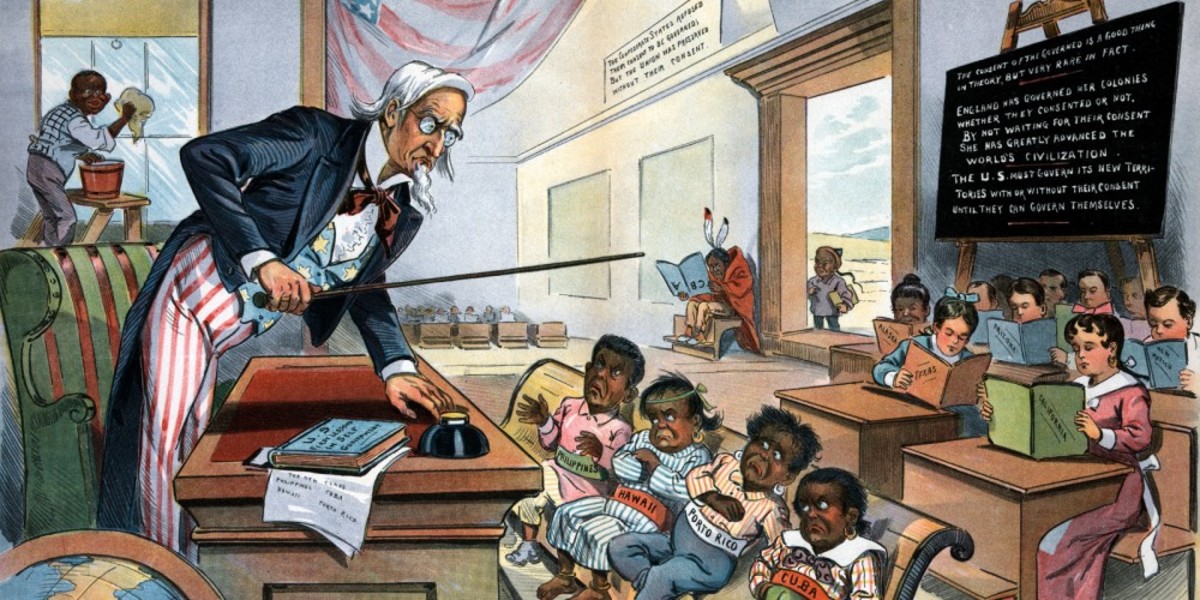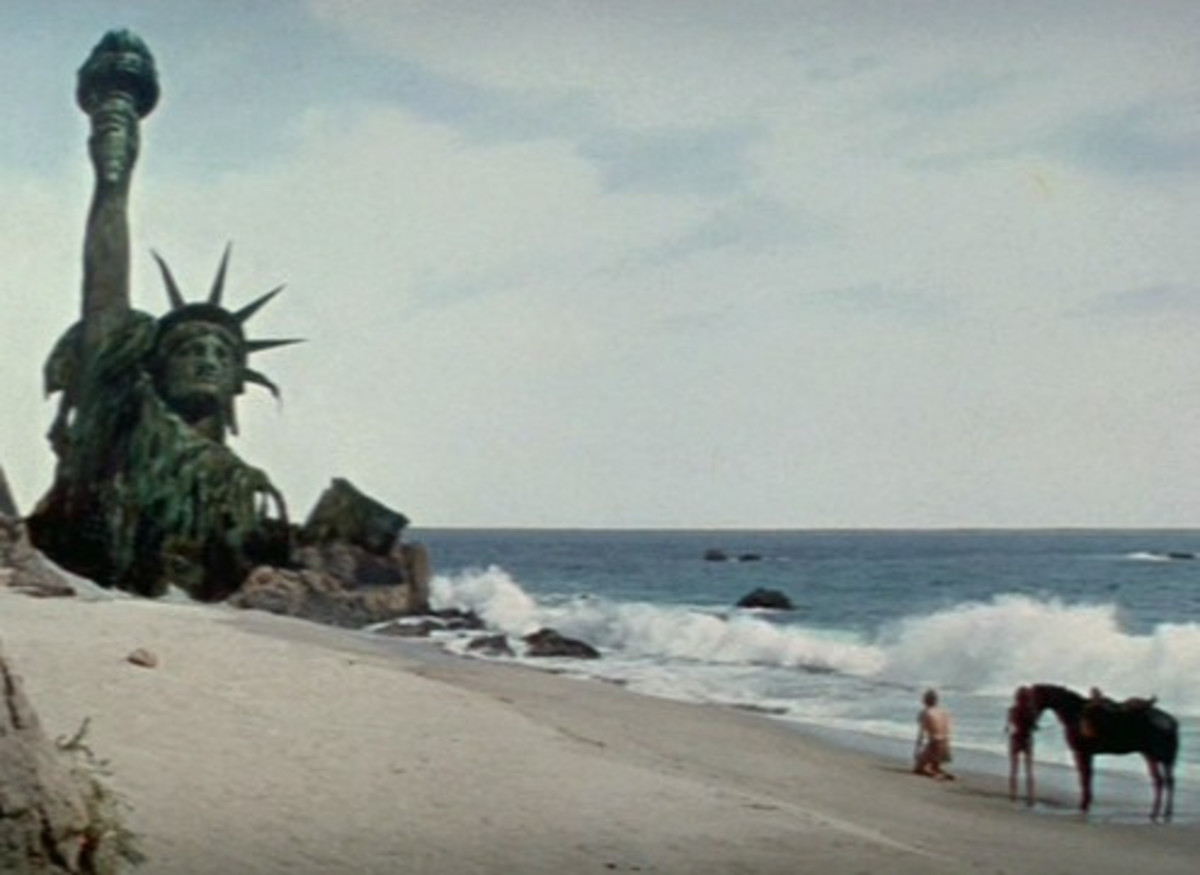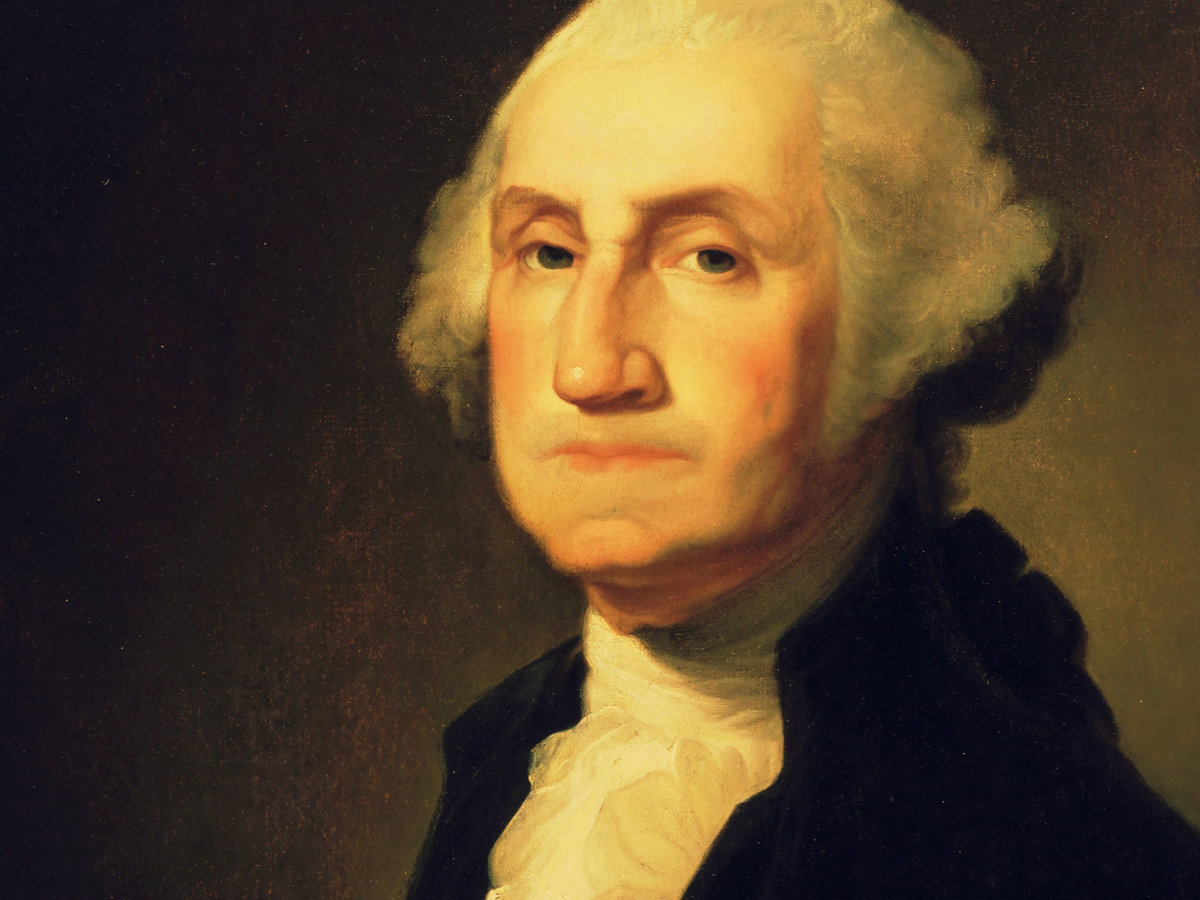- HubPages»
- Education and Science»
- History & Archaeology»
- History of the Modern Era»
- Twentieth Century History
Imperialism: America as a world power
Historical Origin of American Imperialism
Imperialism: America as a World Power – a mock debate between a pro Imperialist America and an anti Imperialist America in 1898 – by Michael M. Nakade (Please note that the debate below is taking place in the world of 1898. The context of America during that time is vastly different from that of 2009. Please do not judge the pro imperialist’s attitude, but please ‘understand’ that his attitude was a reflection of a larger society during that time.)
Pro Imperialist: Cuba is our neighbor. It is a stone’s throw away from the State of Florida. Is it right to ignore the plight of the people of Cuba? They have been fighting for their freedom and independence almost continuously since 1878. The Spanish Empire has committed many unspeakable acts on this island since the fighting began. Cuban refugees in South Florida can tell us firsthand how terrible it is to live under the yoke of Spanish rule. We, Americans, must help the Cubans so that they can enjoy their freedom.
Anti Imperialist: I must caution the accuracy of Spanish atrocities committed in Cuba. The news on the suffering of the Cuban people is being reported by yellow journalism. As far as I know, no American government official went to the island on a fact finding mission. It is scary to think that America might go to war with Spain just because we read something bad about their behavior in the newspaper. I am cautioning that America must not rely on our military forces too readily to settle disputes with other nations. The use of military force must be an absolute last resort.
Pro Imperialist: The Senate is sending Mr. Redfield Proctor to Cuba on a fact-finding mission. Specifically, he is going to visit the prison camp where the Cuban people are being held. Mr. Anti, I do not believe everything I read in the newspaper, either. There is one thing that you do have to believe, and that is that our Battleship Maine exploded in Havana Harbor. Who else but the Spanish would do it? It is an act of war.
Anti Imperialist: I am glad that Senator Proctor is visiting Cuba. I want to make sure that America will make the decision based on facts and not on hearsay. As for the Battleship Maine, it seems highly unlikely that the Spanish would attack our ship. It just isn’t in their best interest to instigate the war with us. I refuse to declare that the Spanish did it when the evidence is inconclusive.
Pro Imperialist: Back in 1822, Mr. Monroe issued his Monroe Doctrine to the rest of the world. He stated that America would not interfere with European affairs, and in exchange, he asked that European powers not to interfere with our affairs in the Western Hemisphere. The Spanish Empire is mistreating our neighbors in Cuba. It is well within our Monroe Doctrine tradition to ask that Spain give up the control of Cuba so that the United States would maintain the proper sphere of influence in the Western Hemisphere.
Anti Imperialist: I hear your argument, but America must not be looking for monsters to slay in the world. I am worried that America might become an overbearing power to our Latin neighbors in the future with this precedence in Cuba. What about Hawaii and the Philippines? These island nations are not in the Western Hemisphere, and yet, we are looking into possible annexation. I am afraid that America’s insatiable thirst for territories overseas will make us a monster to other nations.
Pro Imperialist: First of all, Hawaii and the United States entered into a friendly treaty back in 1875. The agreement was that we buy their sugar without tariff. In exchange, we would have the right to Pearl Harbor. This agreement worked well for both of us. But since 1875, the government leadership in the Hawaiian Kingdom changed. The new queen was not friendly toward the interests of the United States, and it was deemed more appropriate to help the Hawaiians become a republic. And, we did help them become an independent republic in 1893. Now, we’re involved in a possible conflict with Spain. It is possible that we might engage in an epic naval battle with the Spanish fleet in the Philippines. Hawaiian Islands provide us with the perfect coal station for our Navy and supply ships on the way to the Philippines. It is in America’s best interest to annex Hawaii as soon as possible. If we do not act quickly, the British might annex Hawaii. There’s no time to waste.
Anti Imperialism: All I hear from you is the phrase, “The best interest of the United States.” I must warn you that the justice must be foundation of an enduring peace in the world. If we only focus on our best interests, we are not being just toward other nations. I must ask if the Hawaiians in Hawaii felt it was in the best of the Hawaiians to have their country be annexed to the United States. As a matter of fact, I am aware that 95% of the residents of Hawaii petitioned to their new republican government to bring back their beloved queen. It seems that they wanted to have their kingdom restored rather than being a part of the United States territory. How do you feel about that, Mr. Pro?
Pro Imperialism: The best analogy that I can give you is this: Your 5-year-old child does not want to go to school to learn alphabets because he’d rather stay at home and play. He insists that it is in his best interest to play at home. But, if you are a caring parent, you would say, “Son, you’ll need to go to school whether you like it or not, and I know what your best interests are.” Hawaiian people do not know what a privilege it is for them to be annexed by us. They only know their primitive way of life. With the influx of American values, cultures, and language, those brown people will enjoy a higher standard of living and will kiss goodbye to their savage and crude religion once and for all. Trust me. We are doing them a huge favor when we annex Hawaii. Those brown people just don’t know it, yet.
Anti Imperialism: I can hear so much “white man’s burden” attitude in your, Mr. Pro. I do worry about this attitude of yours since it does not reflect your love of justice. Remember what I said earlier. Justice is the founding of long lasting peace. If the Hawaiians feel violated unjustifiably by us, they will resent us for years to come. There won’t be a lasting peace between the United States and the people of Hawaii. How about the Filipinos? They have been fighting against the Spanish rule for some time now. Are we going to help them achieve their independence from Spanish rule? Or, are we going there to replace the Spanish in order to rule the Filipinos?
Pro Imperialism: It all depends what we see in the Filipinos. If we deem that they’d be better of being independent, we will assist them. But, if we deem that they’d benefit from being annexed, we might go ahead and add the Philippines to our oversea possessions. Like with the Hawaiians, the Filipinos will benefit from the Christianization of their islands.
Anti Imperialism: You are making me laugh. The Philippines have had Catholicism for over three hundred years. They are Catholics. I think they have been Christianized alright. I am opposing the idea of annexing oversea countries against their will. Besides, is America going to admit Hawaii and the Philippines to the Union as a state? Will you agree that those ‘brown’ people someday become Americans? I think not. We will be considered ‘hypocrites’ if we annex them but have no intention of letting them join the union as a state in the future. Are you okay with the ‘hypocrites’ label, Mr. Pro?
Pro Imperialism: Look. This is the bottom line. The history of mankind is the history of stronger people subduing weaker people. If we do not annex Hawaii, someone else will. The same with the Philippines. I prefer that America be their protector instead of a ruthless European nation. Besides, having an oversea territory or two will expand our markets. Almost every European power has an oversea colony or two for their economic benefits. Why can’t the United States have one, too? I am not worried about being called ‘hypocrites.’ The point is that America should not let opportunities slip away when she has a chance to own a territory overseas. When we possess those territories, American goods can be sold there. It’s a win-win situation for all involved.
Anti Imperialism: I am very uncomfortable with the justification of committing a crime since everyone else is doing it. I must remind you that the Founding Fathers fought their Independence from Britain because they wanted to be free. They experienced the lack of liberty due to their colonial status. They will be appalled that America of 1898 is looking to conquer the people of overseas in order to improve America’s economic condition. The idea of liberty is dear to us. We must always remind ourselves of Jefferson’s words: “The government derives its just authority from the consent of governed.” Conquering people overseas against their will is morally untenable. It’s creating lots of bad karma. In the long run, we will be sorry.
(The below was added by a fictional journalist in 1910 to explain what took place since 1898)
President McKinley was an Imperialist. He felt that America had a right to intervene in the affairs of territories near her border if those territories were not governed well. With the aid of yellow journalism and a public outcry for a war with Spain, America went to war in April, 1898.
The Spanish-American War began on April 25, 1898 and ended with the Treaty of Paris in December of the same year. In history, this war is known as the Splendid Little War. America acquired the Philippines, Guam, and took a control of Cuba as its Protectorate. Hawaii was annexed in June of that year, though it was not related to the Spanish-American War.
America’s navy overwhelmed the Spanish navy in Cuba and in the Philippines. When the war was over, McKinley demanded Spain to give up the Philippines in lieu of the indemnity. Spain grudgingly agreed. But the story did not end here. The Filipinos were not ready to welcome a new white master. They were vastly disappointed that the Americans would rule over them. Thus, the Philippine Insurrection War ensued. McKinley justified the American control with the belief that the Filipinos were not ready for self-government. The war led to 5,000 American casualties, while the death toll for the Filipinos rose to 700,000, roughly 10% of the population. The war ended in 1902 by the proclamation of President Teddy Roosevelt.
The Spanish-American War was a turning point in the history of American foreign policy. America moved into intervention from isolation. She acquired colonies in both the Caribbean and the Pacific. She also acquired a taste for international politics.
Teddy Roosevelt became the president when McKinley was assassinated in September 1901. He added his Corollary to the Monroe Doctrine in 1904 to justify America’s interventionist policies in the Western Hemisphere. It led to his Big Stick diplomacy, and America became a world power. The acquisition of rights to construct the canal in the Isthmus of Panama was a classic example of Roosevelt’s Big Stick diplomacy.
Note: The Philippines were granted an independence from the United States after World War II. Hawaii became the 50th state in August, 1959, making it the first time in American history where a new state was added when less than 50% of the residents were not of Caucasian ancestry.)
(This addendum is based on the Knowledge Product’s Lecture Series on America’s Wars: Spanish-American War created by Joseph Stromberg in 1989)








